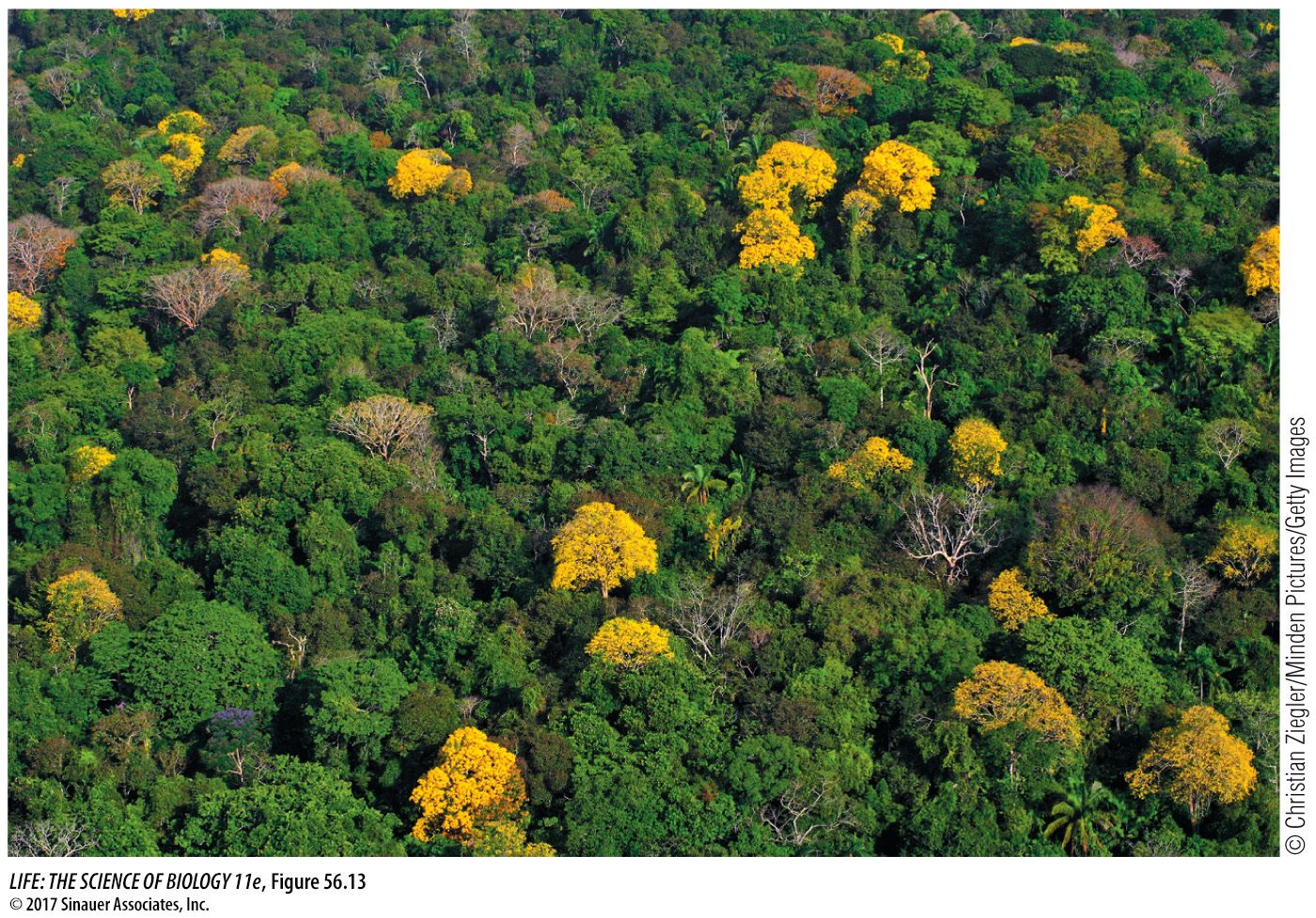Species with similar effects on one another may coexist by chance
We have thus far discussed instances in which communities are composed of a few strongly interacting species and many weakly interacting species. But sometimes species in a community have relatively similar effects on one another. How is species diversity maintained when species vary little in their ability to obtain resources?
Over the last few decades, ecologists have proposed and tested so-called lottery, or neutral, models that emphasize the role of chance in the maintenance of species diversity. Like the name suggests, these models assume that when resources are made available, they are used at random by individuals of different species who happen to be in the “right place at the right time.” As long as all individuals have similar chances of obtaining resources (or “winning the lottery”), and no clear advantage in population growth, then their presence in the community should be maintained by chance events that free up resources for individuals competing for those resources. If there is a large disparity among species in their ability to obtain resources, the dominant competitor will always have a greater chance of obtaining resources and will eventually monopolize them. So for lottery models to work, the element of equal chance for all individuals to obtain resources is paramount to coexistence.
The role of chance in maintaining species diversity, especially in unpredictable environments, has intuitive appeal. As long as individuals of species win the lottery every once in a while, they will continue to reproduce and grow their population. Lottery models have most often proven useful when applied to highly diverse communities such as coral-reef fishes and tropical rainforest trees, where hundreds of species overlap in their resource requirements (Figure 56.13).

Figure 56.13 Lottery Models Emphasize the Role of Chance Highly diverse tropical rainforests have hundreds of tree species that overlap in their resource requirements. As long as all individuals have similar chances of obtaining those resources (or “winning the lottery”), and no clear advantage in population growth, then their presence in the community should be maintained by chance events.
Ecologists are pursuing various and sometimes conflicting hypotheses to explain why certain species coexist in space and time. It is unlikely that any one theory can provide a wholly satisfactory explanation of the mechanisms that drive structure in all communities.
